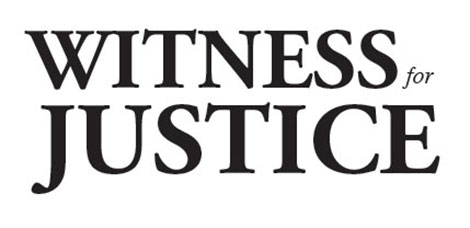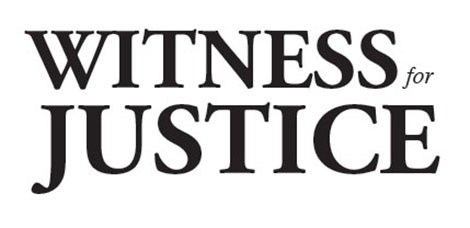Commentary: Making a Difference in Small But Significant Ways

In April I attended the Global Ministries’ gathering of anti-human trafficking activists in Kupang, Indonesia. A group of us went to the airport to join a community as they received the body of a man named Mingus as it was returned from Malaysia. The 40-year old was trafficked some ten years ago and worked in a palm oil plantation there. We were told that, on an average, six coffins of migrant workers or trafficked people arrive every day at different Indonesian airports. The same is true at many Asian airports from which hundreds leave every day in hope of better life.
At the meeting we heard similar stories from many parts of Indonesia and Asia; stories of people who were trafficked for labor, prostitution, begging, even organs. These stories had some common features – the workers had no contracts, no clue about where they were, long working hours, wages less than promised or unpaid wages, inhumane living conditions, and experienced rape, torture, detention, deportation and death.
According to a recent International Labour Organisation report, an estimated 24.9 million victims are trapped in modern-day slavery. Seventy-one percent of these are women and girls. This ghastly business earns billions of dollars in profit for traffickers as it thrives on the desperation of vulnerable people, made and kept poor and powerless. Furthermore, the UNHCR 2017 report alerts that an unprecedented 65.6 million people around the world have been forced from home, and that nearly 20 people are forcibly displaced every minute as a result of conflict, persecution and poverty. With wars and war-mongers active as ever, unabated labor-saving industrial development, and global warming making many places unliveable, this trend of millions being pushed into dehumanisation will perhaps continue for decades.
During our time in Kupang, we also visited some community farms initiated by the Protestant Church in West Timor (GMIT), a Global Ministries’ partner. Recognising that many from poor rural communities are migrating or falling prey to traffickers because their livelihoods are destroyed by industrial development, the church, through these community farms, offers them alternatives to migration. These farmlands, either donated by or leased from congregation members, are cultivated by the community, and 90 percent of the profits are made available for those in the congregation to borrow to start small income generation projects. We heard many stories of their impact.
These small and local initiatives of churches might seem ineffective in challenging large scale human trafficking. But they have the capacity to make a difference by stopping at least a few from falling prey to traffickers. Through such initiatives the church, despite its minority status in a multi-religious context, is also making a statement that it has a distinct mandate, and that it can offer alternatives to ruthless, profit-obsessed, anti-people industrial development by returning to the vocation of nurturing the earth and staying in sync with its life-sustaining capacities. We are not called not only to denounce injustice and its manifestations, but also to announce alternatives to the dominant trends and discourse. And these begin small, as the mustard seed.
Deenabandhu Manchala is Global Ministries Area Executive for Southern Asia.
View this and other columns on the UCC’s Witness for Justice page.
Donate to support Witness for Justice.
Click here to download the bulletin insert.
Related News
Demystifying the Stigma of Mental Illness
Like many others, I come from a family system that placed taboos on speaking publicly about...
Read MoreStaying Grounded in Tumultuous Times
For years I have referred to myself as a peace-loving hippie-type pacifist who believes that...
Read MoreVision and Reality
In 1215, at Runnymede in England, King John signed the Magna Carta. The mythos surrounding...
Read More
